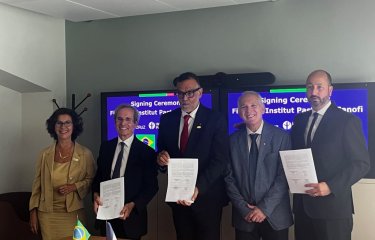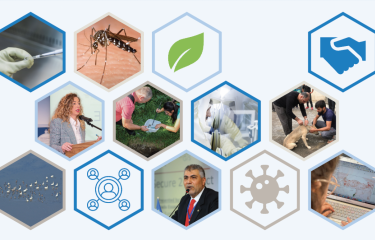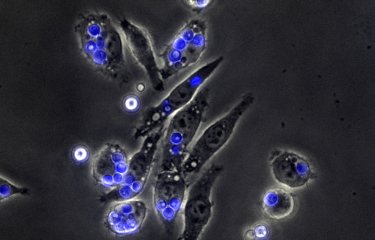SECOND WAVE OF EBOLA IN AFRICA: THE INSTITUT PASTEUR IN DAKAR IS IN THE FIRST LINE
Since March 21, date of the declaration of the outbreak of Ebola in Guinea, the Institut Pasteur from the Africa Region and particularly the Institut Pasteur in Dakar in collaboration with partners, face up to a deadly Ebola epidemic second wave.
The point of the situation in Guinea of June, 15th shows that 3 new areas were added to the two former (Kouroussa, Télimélé and Boffa districts). Today, the number of cases recorded is 376 including 241 deaths. If the epidemic’s epicenter lies in the forested area around the city of Guéckédou (southern Guinea) it extends to Sierra Leone (Kailahun) and Liberia (Lofa).
From the beginning of the epidemic, WHO entrusted the mission to the Institut Pasteur in Dakar for epidemiological surveillance in Conakry and in the districts area of French Guinea. For almost three months, a team of four experts under the direction of Dr. Amadou Sall, Head of the WHO Collaborating Centre on hemorrhagic fevers in Institut Pasteur in Dakar, works in the field to detect new cases, to confirm the diagnosis and to monitor disease. The Institut Pasteur in Côte d'Ivoire alongside the Institut Pasteur in Dakar has strengthened territory surveillance actions. This monitoring process is consolidated by several actions towards the population i.e.: communication, coverage of patients and funerals, health education and the provision of psychological and social support.
The Institut Pasteur in Côte d'Ivoire provided oversight of the epidemic in Côte d'Ivoire in developing the diagnostic in the border with Guinea.
Ebola is a viral disease. Today, five types of Ebola virus were identified. The virus outbreak in Guinea is close to the Ebola virus responsible for the outbreak in 1976 in Zaire.
Identified reservoir of the disease is a bat (R. aegyptiacus) which infects monkeys, cattle and men. At this stage, the transmission is person to person.
Incubation ranges vary from 2 to 21 days and presents 23 to 88% of mortality, around 7 to 10 days after the symptoms. The virus is present in the blood (7-10 days), sperm (> 3 months), secretions, fluids (tears, sweat). Infectious period is the stage of overt disease. To date, there is no specific treatment or available vaccine to fight the Ebola virus. The prevention passes through effective monitoring and management of epidemics.





